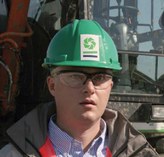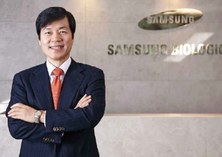Programmes
Ghent University Global Campus offers three 4-year Bachelor's programmes. The granted degrees are Ghent University degrees. All programmes are accredited both in Flanders and Korea.
- Molecular Biotechnology
- Environmental Technology
- Food Technology
The courses in the first two years are the same for all three programmes, with topics such as chemistry, biology, physics and mathematics as well as general topics including management and English. This is followed by two specialisation years in one of the three majors.
Programme characteristics
- All programmes are accredited in Belgium and Korea
- Ghent University Global Campus is part of the highly competitive European higher education system: admission doesn’t guarantee graduation
- Students earn a Ghent University degree
- At Ghent University Global Campus the same quality assurance system applies as at the campus in Belgium
- Ghent University Global Campus is an extended campus, not a branch campus
- All classes are taught in English
- The majority of the classes are taught by permanent Ghent University professors residing in Korea
- Some classes are taught by professors from Ghent University coming to Korea for a short period of time
- All professors have a team of postdoctoral assistants and PhD students who assist with the teaching
- Ghent University Global Campus doesn’t offer general education: all courses are related to bioscience engineering
- Theory-based classes in the morning and lab classes with experiments in the afternoon
- All classes are organized in state-of-the-art facilities
- Students spend the first semester of the fourth year at the home campus of Ghent University in Ghent, Belgium
- All courses at the home campus are also taught in English
Environmental technology
The Environmental Technology programme studies the processes in water, air and soil, and the influence of human activities on these processes. You acquire the technical knowledge to recognize and prevent environmental risks and to find solutions to specific problems. After completing this programme, a broad range of career options will be open to you: research and development in research institutions and (international) companies, policy-making positions in local, regional and national governments, technological and management positions in small and medium sized businesses and international companies, conducting studies at consultancies, and many other leadership positions.
Environmental Technology in practice
Hendrik Nollet studied environmental technology in the Faculty of Bioscience Engineering at the Ghent University. After gaining a Bachelor’s and a Master’s, in 2005 he completed his PhD in Applied Biological Sciences. He is now Project Manager at DEME Environmental Contractors of Zwijndrecht, Belgium.
“DEME Environmental Contractors is an international environmental contractor specialised in environmental remediation, sediment treatment, recycling techniques, environmental dredging and the redevelopment of brownfield sites. We work with clients from diverse industries and run a number of dedicated soil and sediment recycling centres, both in Belgium and abroad. I recommend the environmental technology course at Ghent University Global Campus as the university has an excellent reputation and offers an up-to-date environmental technology course that is highly relevant to today’s world. It is an excellent starting point for a range of possible careers. GUGC students might end up doing environmental remediation together with me!”
Food technology
The Food Technology programme teaches you everything about the chemical and physicochemical, microbiological, nutritional and technological aspects of foods. You study the processes that occur in raw materials and during the production process, the preservation and the preparation of foods. You learn how the quality of foods can influence consumer health and how you can control the safety and quality of foods. After your programme, you will be able to solve problems anywhere in the food chain, and you will be able to work in the food industry, the pharmaceutical and biomedical sector, or in government or research institutions, for example.
A career in Food Technology
Frederik Lievens studied at Ghent University between 1988 and 1993 and is now responsible for the global business unit of bread improvers, enzymes & emulsifiers of the Puratos Group. Puratos is an international group with a full range of innovative products, ingredients and application expertise for the bakery, patisserie and chocolate sectors.
“It’s fascinating to see how the food industry is very technologically driven and exciting to see how we can contribute to make better food products. I am also constantly fascinated by the diversity and the evolution of the global bread industry. Puratos has an affiliate in Korea. We also have subsidiaries and production facilities across south-east Asia in countries such as Japan, Indonesia, Philippines, Malaysia, Vietnam, China and Australia. Studying Food Technology at Ghent University at the Incheon Global Campus could easily result in a job with Puratos in Asia. We are constantly looking for internationally oriented, talented young people with skills and knowledge in food technology to join us.”
Molecular biotechnology
The Molecular Biotechnology programme gives students the scientific background and skills concerning living organisms and a command of engineering techniques combined with aspects of economics and business management. You will be able to contribute to the elucidation of disease mechanisms and translate knowledge to engineering approaches in which living cells or organisms are used for the production of fine chemicals, pharmaceuticals or biofuels. You will be able to develop new bio-molecular products and production processes and control and manage their quality. The programme also offers excellent preparation for students to proceed to an MSc in this research field.
A career in Molecular biotechnologyDr. Tae Han Kim, President & CEO of Samsung BioLogics, has a high regard for Ghent University Global Campus’ course in Molecular Biotechnology. “It will provide an excellent foundation for students in the basic sciences such as biology, genetics, immunology and chemistry, while extending their skills in chemical engineering. It will also be valuable in reinforcing students’ English communication skills – essential for the increasingly global aspect of the biotechnology industry. Within Samsung Biologics, the cluster of research centres located at large-scale facilities in Songdo, various job positions are open to molecular biotechnologists in the areas of process development, mammalian cell culturing, protein purification, quality control, and quality assurance.”
Curriculum
Below you will find a list of the curriculum of the Ghent University Global Campus programmes.
More and detailed information like lecturers, contents of individual courses and practical information can be found in the online programme catalogue
Joint Curriculum
Bachelor 1 - courses
English for Academic Studies 1
English for Academic Studies 2
General Biology
Mathematics 1: Engineering Mathematics
Inorganic Chemistry 1: Structure of Matter
Inorganic Chemistry 2: Reactivity of Matter
Introduction to Biochemistry: Biomolecules
Physics 1 and 2: Mechanics, Vibration and Thermodynamics
Informatics
Bachelor 2 - courses
Organic Chemistry 1: Structure and Reactivity
Organic Chemistry 2: Advanced Reactivity
Chemical Analytical Methods
Plant Biology
Animal Biology
Biochemistry: Metabolism
Mathematics 2: Multivariable Calculus and Geometry
Mathematics 3: Differential Equations
Microbiology
Physics 3: Electricity and Magnetism
Physics 4: Optics and Physical and Chemical Thermodynamics
Environmental Chemistry and Technology: Concepts and Methods
Modern Aspects of Food
Molecular Biology: Concepts and Methods
Environmental Technology
Bachelor 3 - courses
Probability and Statistics
Process Engineering
Process Modelling and Control
Scientific Research Writing
Economics and Marketing
Process Technology
Green Chemistry and Biotechnology
Air Treatment and Technology
Waste Valorization
Remediation of Soil and Sediment
Water Treatment and Technology
Bachelor 4 - courses
Research-to-Business Case studies
Bachelor's Project
Management, Entrepreneurship and Intellectual Property
Company Visits and Seminars
Personal Professional Development
Environmental Risk Assessment
Applied Marine Ecology
Clean Technology: Theory and Concepts
Modelling and Data Analysis for Environmental Applications
Microbial Reuse Technology
Environmental Law and Management
Elective courses:
Applied Freshwater Ecology
Environmental Microbiology
Clean Technology: Assessment Methods
Advanced Wastewaster Treatment Process Design
Processes in Practice
Environmental Noise
Oceans and Human Health
Environmental Inventory Techniques
Food Technology
Bachelor 3 - courses
Probability and Statistics
Process Engineering
Process Modelling and Control
Scientific Research Writing
Economics and Marketing
Process Technology
Food Chemistry
Food Technology
Experimental Food Biochemistry
Technology of Plant-Based Products
Food Microbiology and Preservation
Bachelor 4 - courses
Research-to-Business Case studies
Bachelor's Project
Management, Entrepreneurship and Intellectual Property
Company Visits and Seminars
Personal Professional Development
Human Nutrition
Food Marketing and Consumer Behaviour
Food Safety and Risk Analysis
Milk and Dairy Technology
Meat Science and Technology
Technology of Fishery Products
Food Legislation
Quality Management Systems in Agro-Food Chain
Molecular Biotechnology
Bachelor 3 - courses
Probability and Statistics
Process Engineering
Process Modelling and Control
Scientific Research Writing
Economics and Marketing
Immunology
Bioinformatics 1
Bioinformatics 2
Molecular Biology: Advanced Topics in Eukaryotes
Molecular Genetics
Plant Physiology
Integrated Practicum 1: Plant Genetics and Physiology
Bachelor 4 - courses
Bachelor's Project
Management, Entrepreneurship and Intellectual Property
Company Visits and Seminars
Personal Professional Development
Analytical Biochemistry
Biomedical Physiology
Industrial Biotechnology
Gene Technology
Integrated Practicum 2: Gene Technology in Practice
Bioethics
Plant Biotechnology
Medical Biotechnology
Electives:
Research-to-Business Case studies
Molecular Cell Biology


